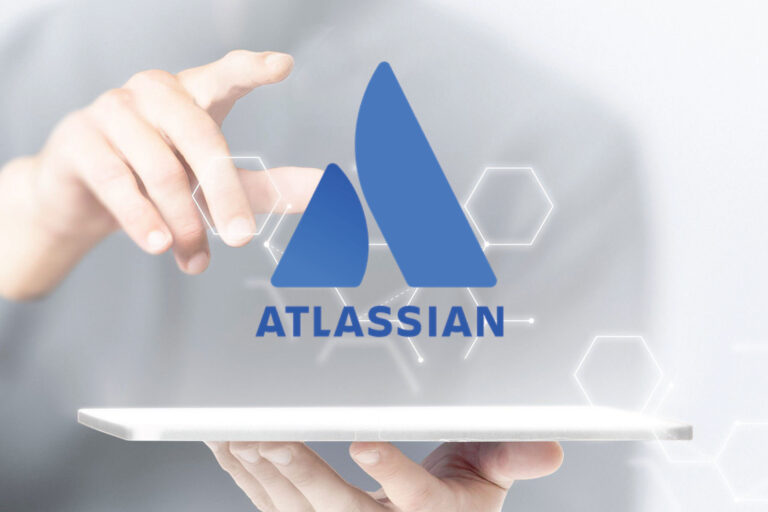The pressing need to develop good quality software and bring it to the market as soon as possible has got every software delivery organization to embark on the DevOps journey. Through improved (and frequent) communication between different teams, DevOps helps organizations bridge the silos while paving the way for the development of high-quality software – with far lesser bugs and issues.
Given the many benefits of DevOps, it makes total business sense for companies to embrace the world of ALM and DevOps – especially government agencies who are struggling to deliver services with speed and quality.
Increased Focus on Digitization In Indian Government Agencies
Digital transformation has become a buzzword across industries and economies, and the focus on digitization in India can be clearly seen via the Digital India program. The vision to transform India into a digitally-empowered society and knowledge economy has made Indian government agencies drive efforts in digitizing legacy systems. They are now looking to embrace modern tools, technologies, and approaches to make government services quickly available to citizens.
| By improving online infrastructure, increasing Internet quality and connectivity, and revamping existing government initiatives, Indian government agencies are on the road to becoming citizen-centric organizations while ensuring optimal utilization of existing IT infrastructure and resources. |
Why DevOps is Necessary – Especially After COVID-19
COVID-19 completely changed life as we know it. As the pandemic began to impact normal work life, many public administrations and government agencies were forced to transition to a remote, work-from-home model, that brought about several challenges and novel constraints to millions of officials across the globe. In India, especially, weak digital infrastructure, stringent regulatory procedures, and IT illiteracy made remote service delivery a real challenge. Flattening hierarchy, mitigating security risks, allowing flexible schedules, and facilitating frequent communication and collaboration is particularly problematic.
With Software delivery teams working for many government agencies are now seeing work-from-home as a viable, long-term option, communication, collaboration, and tracking become the essential aspects. By breaking the rigid siloes, ensuring frequent communication, and through automation, ALM and DevOps can help overcome the challenges officials face in a remote work model. The collaboration and tracking tools help in keeping the officials productive and services uninterrupted.
| It can help enhance the efficiency of Government-to-Citizen (G2C), Government-to-Business (G2B), Government-to-Government (G2G), and Government-to-Employees (G2E) initiatives while improving back-office processes and interactions within the entire government framework. |
In a business environment where most government IT and Software Development projects are outsourced to System integrations, ALM and DevOps can help meet a gamut of important business objectives including
- Faster time to market
- Better cost optimization
- Higher uptime of applications
- Increased throughput, and more.
Challenges in Software Delivery Centers for Government Agencies and How DevOps Helps in Solving Those
Most state and local government organizations often have their development, operations, and other specialist teams working in isolation. Typically, one department initiates a project and then hands it over to another for progression or completion, with little or no collaboration. It can dilute project ownership and also impede the efficiency and speed with which new or updated services are delivered to the public.
Here are some challenges that government agencies face:
- Multiple stakeholders with multiple hierarchies: Government organizations are known to be marked by a considerable degree of hierarchy that command high control and do not generally work in favor of virtual teams. The presence of multiple stakeholders across multiple hierarchies makes collaboration extremely difficult. DevOps helps in flattening this hierarchical structure. By forging connections between different stakeholders, it can help maintain the level of communication needed to enhance trust, encourage knowledge sharing, and improve organizational commitment.
- Dev and Ops teams working in silos, but departments are interdependent: Government agencies often have Dev and Ops teams working in silos. Despite such isolated working, there is interdependence on departments, which makes product development (and delivery) difficult and delayed. DevOps helps in understanding the needs of individual teams, helping them anticipate those needs, and getting rid of their hassles.
- Stringent approval process: The presence of several regulatory procedures and stringent approval processes also impact the level of human interaction needed to fulfill service delivery. DevOps, through frequent communication, helps overcome the presence of imposing policies and rigid reporting procedures. By paving the way for the right level of remote oversight, it helps public officials fulfill service delivery needs.
- Need to launch new offerings quickly: Government organizations also face the pressure of launching new offerings quickly. In a remote work model, however, the lack of proper communication makes this difficult. DevOps brings people from across the organization together to achieve specific business outcomes and keep pace with the needs of citizens. It empowers teams to take on more responsibility, helping projects get completed in a more agile manner.
- Scalability of systems: Meeting the new demands of citizens requires government agencies scale as per their needs. However, rigid approaches to software delivery often come in the way of accessibility, functionality, and security of products. DevOps, through 360-degree communication and better integration between teams, helps drive scalability that is needed for faster turnaround. By making processes much more efficient, it results in optimal development – with fewer disruptions and lesser cost of operation.
How to Ensure DevOps success
ALM and DevOps offer a great alternative to government agencies to overcome the challenges of long-established, inflexible, and rigid practices.
By bringing previously disparate teams together, it helps improve the efficiency with which services are developed and delivered for state and local governments and their constituents.
To ensure better value out of outsourced Software Delivery and maintenance operations, here are some DevOps best practices government departments can use:
- Carefully assess existing practices and tools and develop robust roadmaps to improve automation and enable CI/CD.
- Work towards building a culture of DevOps to ensure rapid delivery of capabilities, updates, scalability, and security.
- Focus on people, processes, and technology to integrate DevOps across every aspect of the software delivery lifecycle and drive rapid software development and release.
- Embrace tools and technology to increase collaboration and automation and meet new expectations while adhering to strict regulatory procedures.
- Automate testing and deployment functions to allow for faster feedback, enable actionable corrections, and overcome lags in staff productivity.
As digital transformation and the new work from home model quickly take the business world under their embrace, government organizations have no choice but to embark on the journey to enhance operations, improve service delivery, and serve customers better.
| With agility becoming a driver of digital transformation, DevOps helps in keeping up with the pace of innovation happening in the world. By leveraging the benefits of continuous delivery, it helps in traversing rigid systems and approaches, flattening hierarchies, and overcoming stringent regulatory procedures and approvals to deliver services at the speed and quality that citizens demand. |
Worldwide, government agencies, including NASA, BAE Systems, Department of Defense, are already using Atlassian DevOps solutions to power innovation. In India, Addteq is proud to be working with agencies such as CDAC, BHEL, and the Indian Navy to help them make the most of these tools and ensure DevOps success.




